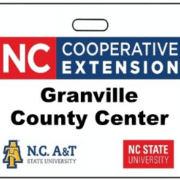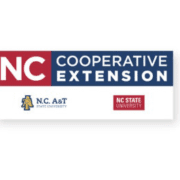TownTalk: Voluntary Ag Districts Benefit Local Farmers
Statistics back up the anecdotal evidence – rural landscapes, once dotted with crops and livestock pastures, are changing. The seemingly endless rows of corn, cotton or tobacco have been replaced with homes and subdivisions right here in our own back yards.
North Carolina has a program that serves to protect and preserve existing farmland. Of the state’s 100 counties, 90 have established voluntary agricultural districts as a way to preserve farmland and to let prospective neighbors know what it means to live near a working farm.
Granville County is one of the newest participants in the VAD. Kim Woods spoke with John C. Rose on Monday’s Town Talk to share details about the program. Woods said that North Carolina ranks in the top five states in the nation in terms of loss of agricultural land in recent years.
Woods is the livestock agent for N.C. Cooperative Extension in Granville and Person counties. The Granville office is the lead agency for establishing the VAD, she said. The former unit director started the process, and after he retired, Woods said she continued to work with the local advisory board to finish the process.
Many North Carolina counties have a rich history of agriculture and farming, and VADs are a way “for counties in North Carolina to promote and enhance agriculture,” she said. There’s a pride factor involved, too, in promoting the importance of agriculture.
“Agricultural land provides our food and fiber that we need to survive,” Woods said. It also preserves desirable greenspace in the landscape, she noted.
In addition, the VAD offers some protection of farmland, ensuring that it will remain in use as productive farmland. But a VAD also serves to inform people who may be looking to purchase property in the county just where those farms are located.
Woods has lived on a farm her whole life and she and her husband currently live on that farm in nearby Orange County. And she well knows that farming is not an 8 a.m. to 5 p.m. proposition – the drone of irrigation pumps running late into the night to deliver crop-saving water, she said, is just one of the many sounds a farm may produce. The dust from tractors in the summertime, bawling calves at weaning and other sights, sounds and smells that emanate from a working farm are just part of the territory.
“I don’t see a negative to this program,” Woods said, adding that her Orange County farm is in the VAD. “I wouldn’t be promoting something I don’t agree with,” she said.
The enrollment process is simple. Landowners complete a basic application that is submitted to the local VAD advisory board. Upon approval, the application passes through a couple of other county groups – mostly a formality. There is no cost to enroll, but Woods said a VAD sign would be available for $25; additional signs to mark other tracts would cost $50 each.
Although the farmer agrees to keep his land in agricultural use for 10 years when he or she enrolls in the VAD, that decision can be reversed at any time, Woods said, without penalty.
Landowners also sign a conservation agreement that goes along with the application. Farmers enrolled in the VAD can get a higher reimbursement rate on cost-share programs to improve their land, such as fencing livestock out of ponds and creeks.
A VAD can reduce the possibility of new neighbors complaining about living too close to a farm – Woods said the county’s computerized GIS will let prospective buyers know if the land they’re interested in is within one mile of a VAD-enrolled farm.
According to its website, there are 12,000 farms currently enrolled in VADs across the state. Granville and Warren counties have “regular” VAD ordinances; Franklin County established an enhanced VAD, which means that landowners have the choice to upgrade their commitment to the VAD; they may not un-enroll within the 10-year period, but must wait until that time has elapsed.
Vance County does not have a VAD ordinance.
To learn more about the Granville VAD, contact Woods by phone 919.603.1350 or via email at Kim_woods@ncsu.edu. Visit http://www.ncagr.gov/Farmlandpreservation/VAD/ to learn more about the statewide program.



